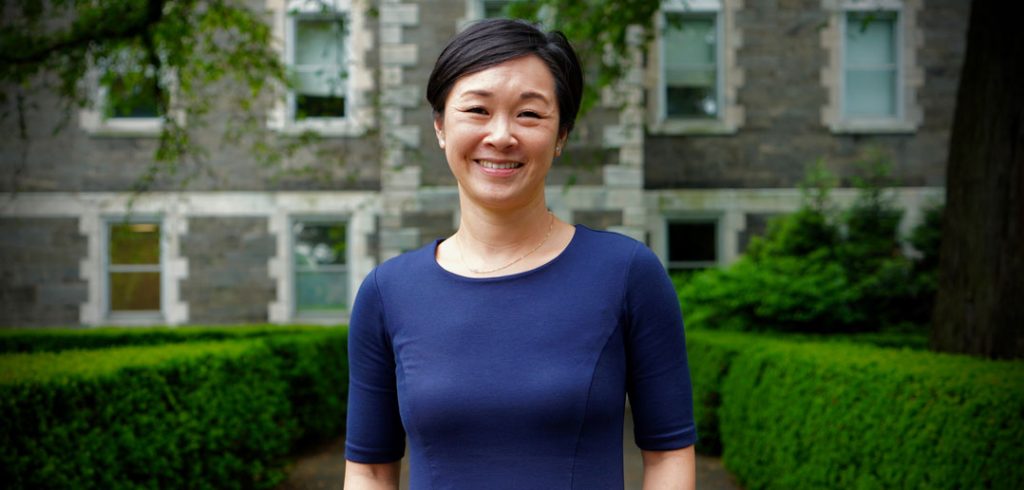Her latest research looks at what happens when we face discrimination in our daily lives and whether having a strong sense of racial and ethnic identity better protects us from the effects of discrimination—or makes us feel worse.
This interview has been edited and condensed for clarity.
What inspired you to research the relationship between discrimination and racial and ethnic identity?
There was a growing literature that found really negative effects of discrimination on how kids feel about themselves: their physical health, their mental health, their academic well-being. In the adult literature, discrimination is connected with things like obesity, blood pressure, breast cancer, and mortality. That literature is quite robust—meaning there’s been a lot of studies that find these very consistent effects.
So then I started putting these three pieces together: discrimination, health outcomes, and identity. If discrimination is so bad for outcomes, how might identity play a role in this? My hunch was … it’s good for kids to feel good about their racial identity. But I wanted to see where the data fell. It was really important to find the evidence and the data to support it, rather than just conjuring up ideas that made sense in our heads.
How did your new study compare to similar research conducted in the past?
There was very mixed literature [in the past]. Some studies found that having a strong sense of ethnic identity helped buffer the effects of discrimination. And then other research found if you have a really strong sense of identity, it actually makes you feel worse. It impacts you more because it’s an important part of who you are. We were finding mixed results in our own data, too. And so that’s why we set out to do this meta-analysis.
What my students and I did is we went through all of the published research, unpublished research, dissertations, raw data that people were willing to share with us. And we came up with this meta-analysis to see once and for all, is identity good or bad for discrimination?
You and your students pored through data from 18,000 teenagers and adults across the world. After completing your meta-analysis, what did you find?
The overall take-home is that having a strong sense of ethnic identity does mitigate the effects of discrimination.
One of the main dimensions of identity that we looked at was a sense of commitment—how strongly connected you feel to your group. You know you’re a member of this group, and it’s integral to who you are. The other dimension we looked at was how active you are in exploring the meaning of your identity. You’re still thinking about it, trying to figure out the role of race and ethnicity in your identity.
What we found was that people who are sure and committed and clear about their sense of identity … that’s where you see the benefits. If you’ve decided that’s an important part of who you are, you have a toolbox for how to deal with it. One, you’ve probably dealt with it before. Two, you probably have a community of people. You can say, hey, this happened to me today. And they can say, oh, that happened to me too. Or they can help you process it. And three, just having a sense of … I know who I am. When you have clarity around it, you can say, oh, the issue isn’t about me—that’s about you.
But for people who are still not sure, it has a worse impact on them. If you are, let’s say African-American, and you’re not quite sure what that means yet, and people discriminate against you for that, it has a much worse impact because you’re not even sure how you feel about being a member of a group, and still people are treating you unfairly because of it.
Did you find any differences among racial groups?
Yes. Having a strong sense of commitment to your identity was actually stronger for Latinx than for Asian American individuals. We can speculate, but we don’t really know why that is. These processes and dynamics are so different for various groups in the United States and even abroad just because their histories and social positioning are so different. Immigration histories, language, acculturation—all of that.
How can we encourage people, especially children and adolescents, to embrace their racial and ethnic identity?
Research on racial socialization with families—how parents talk to their kids about race—suggests that parents who instill feelings of pride in their racial and ethnic group can help kids develop a sense of identity, which would then help buffer discrimination. There’s also some research looking at peer socialization. So how do peers talk to kids about their race and identity? Having those messages, either from friend groups or parents or maybe even the media, can encourage students to embrace diversity, individuality, and differences across racial and ethnic groups.
So it seems like it really starts at home, with parents fostering a sense of pride in their children.
I also think community matters. For example, if your parents are telling you it’s great to be Latinx and you go to school with kids where there are no people like you, or you live in a neighborhood where there are no other Latinx families, that message only goes so far.
I think children are more impacted by their parents at a younger age. But once they move into middle and high school, I think peers have a much stronger socializing effect.

